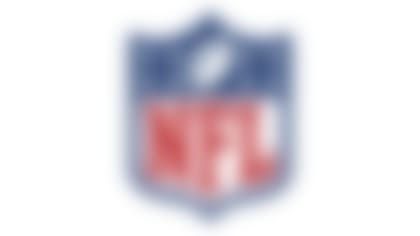Nineteen months ago, the NFL and NFL Players Association agreed to implement human growth hormone testing of players as part of a 10-year collective bargaining agreement.
Now they might be further apart on the issue than at any other time since.
The union's release trumpeting cross-country skiing champion Andrus Veerpalu's victory in appealing a positive HGH test touched off a war of words that led to the revelation that the NFL and NFLPA have taken a major step back in their talks in recent months.
The previous pact to implement a population study to set ranges for HGH testing now is off. Adolpho Birch, the NFL's senior vice president of labor policy and government affairs, on Jan. 10 sent a letter -- obtained by NFL.com -- to inform the NFLPA that it no longer was interested in implementing a population study but would be open to further negotiations on the HGH testing policy's appeals process.
Veerpalu, an Estonian skier whose case was heard in the Court of Arbitration for Sport, was exonerated Tuesday because of "procedural flaws" related to the ranges allowable in an athlete's system, although the panel said it believed Veerpalu took HGH and also backed WADA's testing method. CAS called for a larger population study from the World Anti-Doping Agency to remedy the allowable-range problem, which plays into the NFLPA's argument that larger professional football player's ranges can't necessarily be compared to different types of athletes. The NFLPA also has brought up the lack of African athletes that are part of WADA's pool.
WADA director general David Howman fired back Wednesday, telling The Associated Press that "I would expect the players association to take a stance which is extremist. What we've got to do is get to reality and not to a position that is an extremist position."
Howman added that he believed the NFLPA has "blocked" the process, a contention with which the union takes exception.
"We believe that the NFL's lack of action on proceeding with a population study that we both agreed to do has delayed the process," NFLPA director of external affairs George Atallah said. "The easiest way to verify the science of the isoform HGH test amongst NFL players is to conduct a population study of NFL player. It is perplexing to us that the league would not want to move forward on that agreement."
Amid suspicion that neither party really wants HGH testing, for fear of PR fallout from positive tests, Atallah said the players view the potential short-term loss being dwarfed by long-term gain - "This idea that NFL players and the NFLPA do not want HGH testing is a myth."
The league also defended its position on testing and refuted the contention it doesn't want testing.
"That's false, at least from our perspective," NFL spokesman Brian McCarthy said. "You talk to players, and guys say they want it. London Fletcher said he wanted it. And that part of it, about where we stand, I can tell you we want testing."
The league initially agreed to the union's request for a population study in late 2011, but disagreements over the doctor who would conduct such a study prevented the study itself from ever getting off the ground.
Sources on both sides contend the doctors they proposed were stonewalled by the other party. One agreed-upon doctor, Dr. Alvin Matsumoto, withdrew from the process last May, with the NFL and NFLPA giving conflicting reasons on why.
The fight continued into 2013, right up until Birch sent the letter to the union two months ago.
"In short, we believe that the record demonstrates the league's sustained effort to move beyond this Impasse," Birch wrote. "Given, however, the universal consensus regarding the pointlessness of doing an NFL-specific population study, we cannot find the value in continuing to invest additional time in that endeavor. That said, we remain open to continuing discussion of various aspects of the testing policy including the selection of hearing officers and the appeal hearing process."
An NFL source said the NFLPA offered to drop its demand for a population study if it would adopt Major League Baseball's third-party appeals process. The source said the league agreed, and the union then reneged.
"NFL players would have the ability to challenge the underlying science of the test as part of their appeal," NFL spokesman Brian McCarthy said. "They would be able to do so before a third-party arbitrator."
A union source said the reason it backed out of the agreement is that the league wanted other elements of baseball's drug-testing policy, unrelated to HGH and not part of football's policy, added as part of the deal.
The NFL and NFLPA have long agreed on the science behind the WADA test. But the lack of an agreement on how to set ranges for pro football players based on the results makes that -- and everything else after it, including the appeals process -- irrelevant without a way to get testing off the ground.
"The primary concerns always been with the credibility and trust and a fair due process," Attalah said. "We can no longer afford to be in a situation where we can take their word for it."
Follow Albert Breer on Twitter @AlbertBreer.











